
Papanow Vi Togo
Papanow Vi Togo is a local and circular project: production in Togo, benefits in Togo.
Ideas meet halfway between reality, dreams and necessity, and from this union comes PAPANWOU VI, a social project that wants to contribute to restoring dignity to Togolese girls who have to sacrifice their freedom during menstruation due to a lack of means and hygienic protection.
The context
In Togo, the lack of menstrual pads is a major issue for girls and women. This is because many people do not know how to use them and they are not readily available in stores or markets. As a result, many girls miss school during their periods due to lack of proper sanitary protection or facilities at school to manage their menstruation properly. The absence of menstrual pads also contributes to poor sanitation practices which can lead to infections such as urinary tract infections (UTIs), vaginal infections and reproductive tract infections (RTIs).
With this project, Aviat wants not only to provide freedom of access to these items that are inaccessible to many families, even though they are essential for maintaining good health from puberty onwards, but also to promote local entrepreneurship.
Why washable pads
Menstrual pad distribution is a great way to help women in Togo. There are many reasons why this is true, but the most important one is that there is a severe lack of education about intime hygiene. This means that many women are not aware of how to properly care for themselves during their periods, which can lead to serious health problems like bacterial infections or even death if left untreated.
Menstrual pads provide an opportunity for girls and women living in rural areas who do not have access to clean water or sanitary products such as tampons or pads (due either to cost or lack of availability) with an option that allows them more freedom while they go about their daily activities without fear of leaking through their clothes and causing embarrassment among peers at school or work places where people may see them wearing stained clothes after leaving home early morning before everyone else wakes up from sleep.
What do we actually do?
Awarness-raising
Awareness-raising is an essential starting point, as it enables girls to acquire the knowledge and skills necessary to manage menstruation safely and hygienically. In addition, awareness-raising aims to create a culture of hygiene and mutual respect, which promotes awareness of women’s rights and dignity. The project therefore aims to provide girls with the tools to experience their menstrual period in a healthy, safe and dignified manner.
Our meeting point is mainly within the school setting and local health centres, where we stop to tell and explain how to take care of oneself during menstruation.
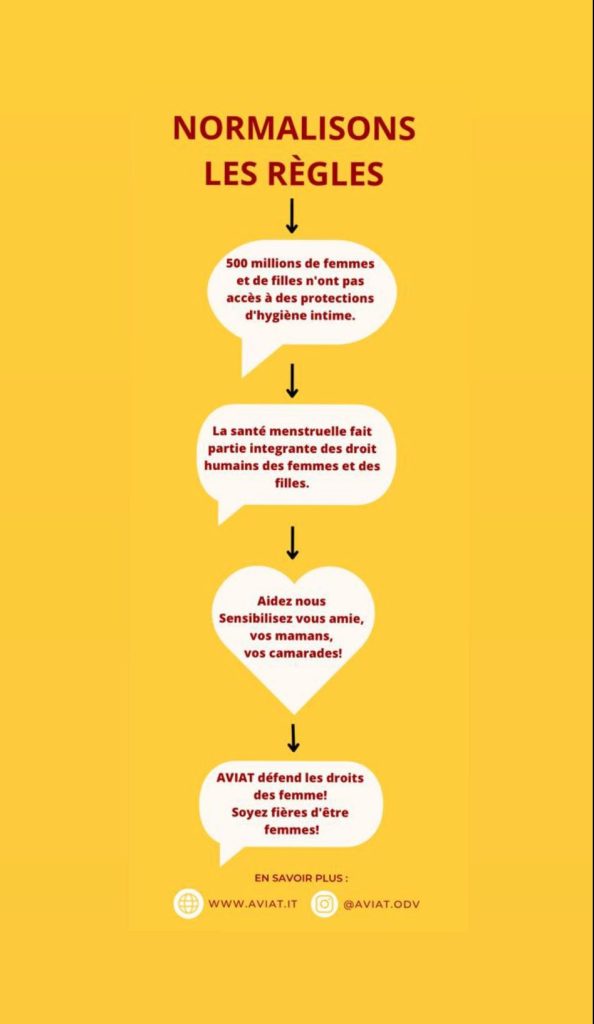
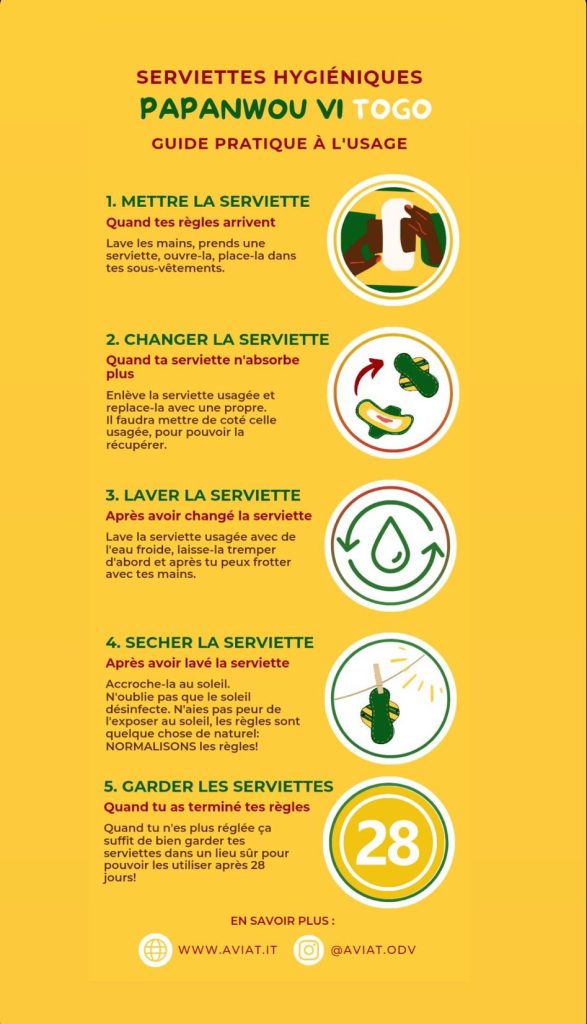
Training
The second step of the Papanow Vi Togo project involves training young Togolese seamstresses to make washable sanitary napkins. These products, made from sustainable and low-cost materials, represent an environmentally friendly and affordable alternative to traditional disposable products. The training of Togolese seamstresses is a key part of the project, as it creates new job opportunities for young Togolese women and provides them with the necessary skills to produce and market the sanitary products. This promotes the economic development of local communities and provides women with tools for their financial independence. In particular, we addressed the Saint Michel tailoring school, which will be opened by Aviat in 2019. The school provides a three-year course for 12 girls and one boy. In the training course, we also taught how to make washable sanitary towels.
This step of the project thus aims to promote economic, social and environmental development in Togo, and to provide women with the tools for a healthier and more sustainable future.

Production
The third step of the Papanow Vi Togo project involves the production of washable sanitary towels at the tailoring school funded by Aviat. Thanks to the skills acquired by the seamstresses during the second step of the project, it is possible to produce the pads using low-cost materials, such as old towels or industrial scraps of towels. The production of the pads at the tailoring school represents a great opportunity for the women in Togo, as it gives them access to secure and sustainable employment. In addition, the use of recycled materials for the production of the pads is an important contribution to the reduction of waste and the adoption of sustainable practices. The production of washable pads at the tailoring school demonstrates how the adoption of sustainable practices can create job opportunities and improve people’s quality of life.
Students at the sewing school produce pads in two sizes: medium (20cm) and long (26cm). Each pad is created by overlapping 3 layers: the terry (cotton or bamboo), the technical PUL fabric and another layer of cotton fabric.
Distribution
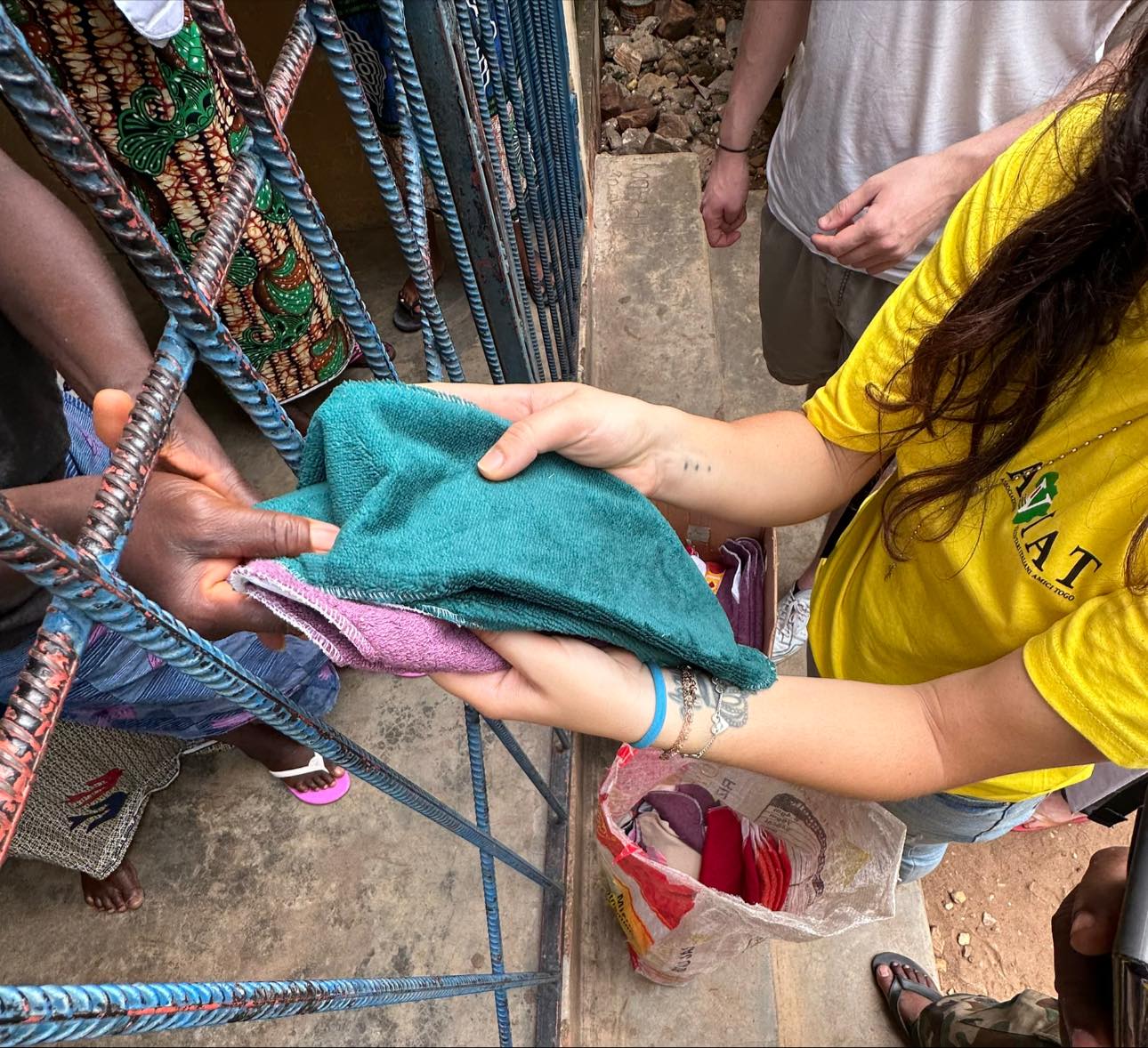
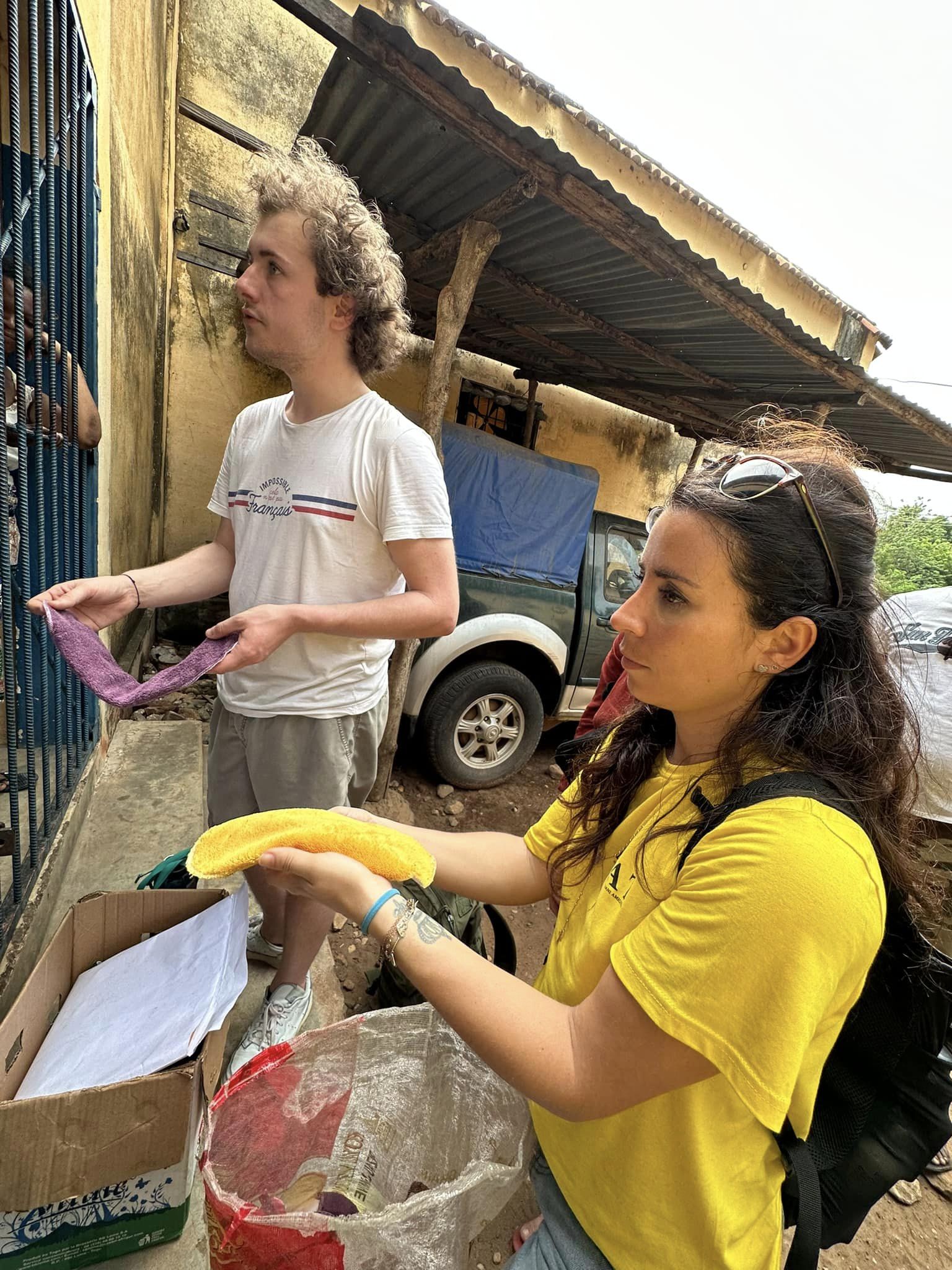
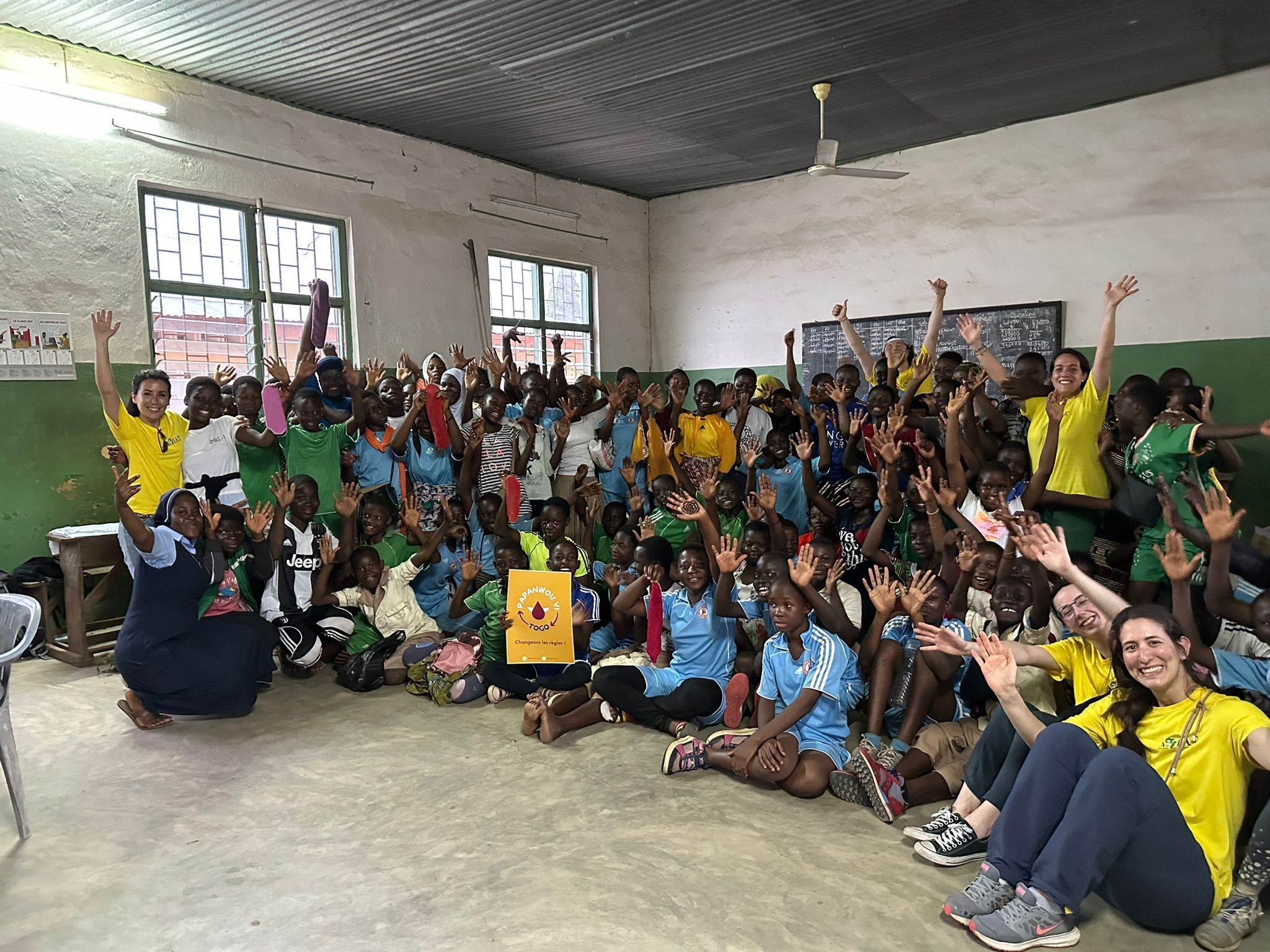
In the last step of the Papanow Vi Togo project, washable sanitary towels produced at the Aviat tailoring school are distributed to the women in kits of four to each girl. Thanks to the availability of these low-cost, quality hygiene products, the girls can participate in normal activities such as going to school during their menstruation.
Until now, many girls in Togo did not have access to tampons during their menstrual period and used cotton pads (at best). This led to a fear of soiling and a lack of participation in daily activities, including access to education.
The distribution of washable sanitary napkins is therefore an important step towards promoting the health and well-being of women in Togo, ensuring their access to quality hygiene products and empowering them to fully participate in daily life, including education.
For each kit we ask, situation permitting, a contribution of 400 CFA (about 0.60€). Why are they not free? Because what is collected from the distribution of the pads is reinvested in the tailoring school, allowing a mutual and circular benefit among the women.
A project by women for women!